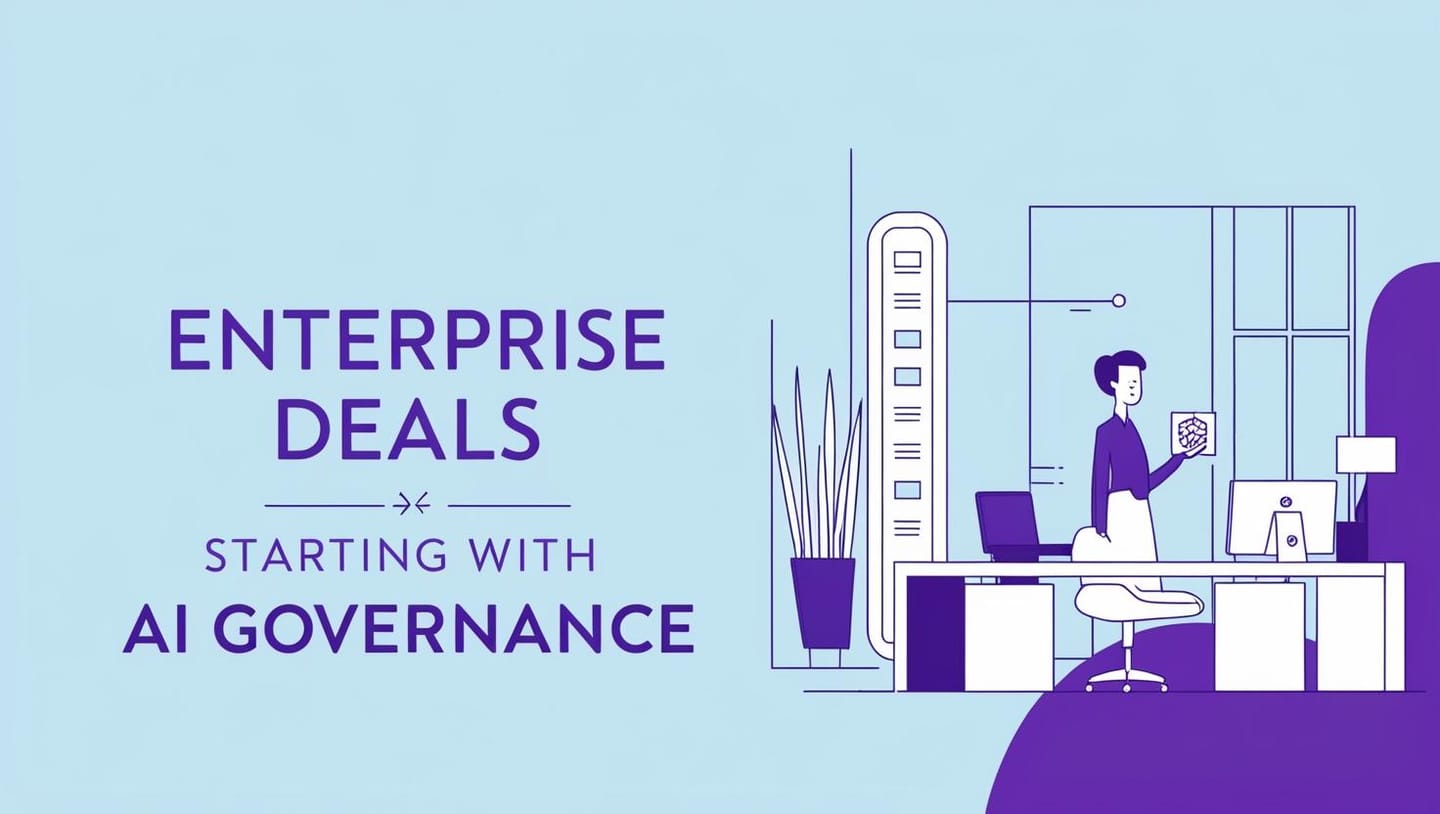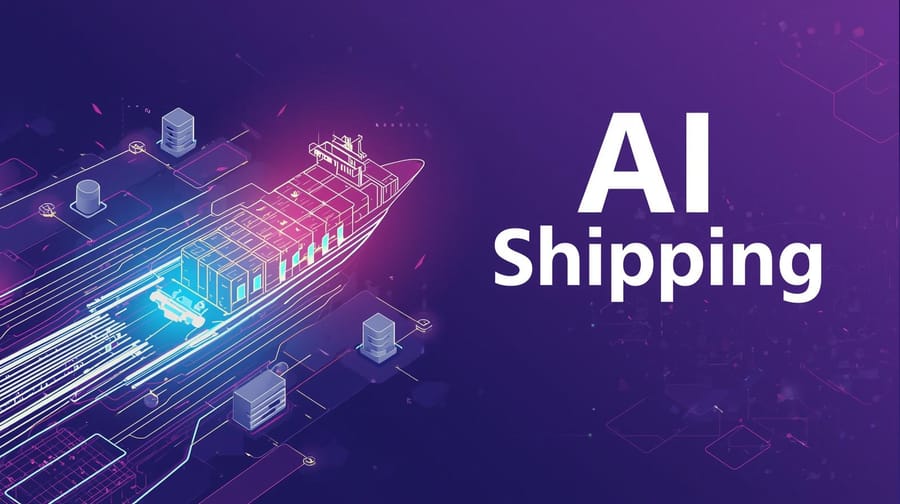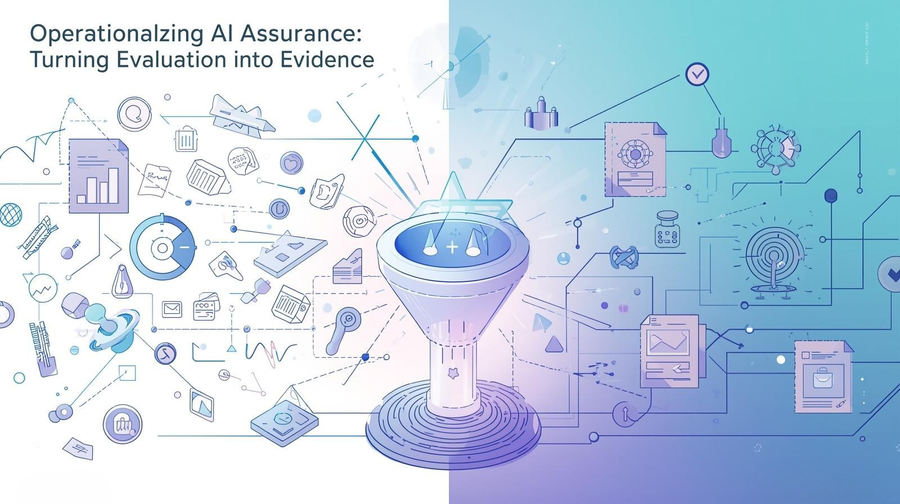AI adoption across enterprises is skyrocketing. Yet, with this adoption comes heightened scrutiny. Procurement teams are now closely evaluating AI vendors for compliance, risk management, and governance practices.
Is your startup prepared to pass these rigorous assessments?
Why Enterprise Procurement Matters for AI Startups
Enterprise procurement isn't just about closing deals—it's about demonstrating credibility, trustworthiness, and compliance with complex global regulations. Startups must anticipate thorough assessments to thrive in competitive markets, ensuring they meet governance frameworks such as the EU AI Act, NIST guidelines, and ISO standards.
Many startups delay governance documentation until they encounter procurement blockers. But in reality, early governance readiness is a strategic advantage—saving time in enterprise deal cycles and boosting investor confidence.
Key Factors Procurement Teams Evaluate
Procurement teams often scrutinize the following aspects when considering AI vendors:
- Regulatory Compliance: Alignment with EU AI Act, GDPR, NIST AI Risk Management Framework, and ISO standards.
- AI Governance Practices: Clearly defined policies, transparency, and proactive risk management.
- Data Security & Privacy: Robust data handling practices, encryption standards, and data anonymization.
- Audit & Monitoring Capabilities: Continuous compliance monitoring and incident response procedures.
Steps to Ace Your Enterprise Procurement Assessment
1. Conduct an AI Self-Assessment
Start by internally evaluating your AI systems against established governance benchmarks. Self-assessments help identify gaps early, providing foundational insights to support your risk assessment and mitigation strategies.
Frameworks like the EU AI Act and NIST AI RMF aren't just checklists—they reflect a shift toward building AI systems that are explainable, fair, and resilient. Meeting these standards early signals maturity and trust to buyers.
2. Develop Clear AI Policies
Procurement teams look for well-documented policies that address:
- AI ethical usage
- Data privacy and protection
- Model fairness and bias mitigation
Tools like Cognitiveview’s AI Policy Assistant streamline policy drafting aligned with international standards like NIST and the EU AI Act, giving you an advantage over generic compliance approaches.
3. Leverage an AI Policy Assistant
Cognitiveview’s AI Policy Assistant helps your startup:
- Build essential compliance documentation within minutes
- Clearly articulate your AI products to buyers and stakeholders
- Draft comprehensive and compliant policies rapidly, often within just a few hours
This powerful tool simplifies the policy drafting process and accelerates procurement readiness.
4. Create a Transparent Trust Center
Establish a Trust Center—a centralized platform showcasing your AI governance practices transparently. Include:
- Publicly shareable governance summaries
- Compliance certifications
- Data handling practices
This transparency can significantly accelerate trust-building with enterprise customers.
Real-World Examples
Healthcare AI Procurement
A healthcare startup offering AI-driven clinical decision support integrated a comprehensive governance framework early in their product lifecycle. They used structured self-assessments and implemented AI policy drafting aligned with HIPAA, NIST, and EU AI Act guidelines. This proactive approach dramatically reduced procurement friction, helping secure rapid deployment within major hospitals.
Fintech AI Procurement
A fintech startup providing AI-driven financial risk assessment integrated clear governance practices from the outset. Utilizing Cognitiveview’s AI Policy Assistant, they rapidly developed compliant policies aligned with financial regulations like GDPR, global financial regulations, and the EU AI Act. Their transparent governance processes enabled swift acceptance by major banks and financial institutions.
Industry Best Practices
- Finance: Emphasize data encryption, real-time monitoring, and compliance with global financial regulations.
- HR: Demonstrate bias mitigation policies and alignment with EEOC guidelines.
- Cybersecurity: Prioritize threat detection capabilities and rapid response workflows.
Emerging Trends in AI Procurement
As AI capabilities expand—from foundation models to autonomous decisioning—enterprise procurement teams are beginning to demand greater visibility into model explainability, provenance, and post-deployment monitoring. Startups that anticipate these expectations will stand out.
According to Cognilytica, over 60% of enterprises now include AI-specific governance requirements in their procurement processes.
Preparing for Procurement Success: Quick Takeaways
- Conduct proactive AI governance self-assessments to support risk assessment and mitigation.
- Clearly document and communicate your AI governance practices.
- Leverage AI policy drafting tools to ensure compliance alignment.
- Establish transparent channels (e.g., Trust Centers) for stakeholder communication.
Ready to Elevate Your AI Governance?
Enterprise procurement doesn’t have to be a bottleneck. By proactively aligning your startup's governance practices with global standards, you position your company as a trusted AI partner.
Curious how your governance stacks up? Try our AI Self-Assessment tool or request a walkthrough of our AI Policy Assistant. These quick-start tools can help you get procurement-ready in hours—not months.






